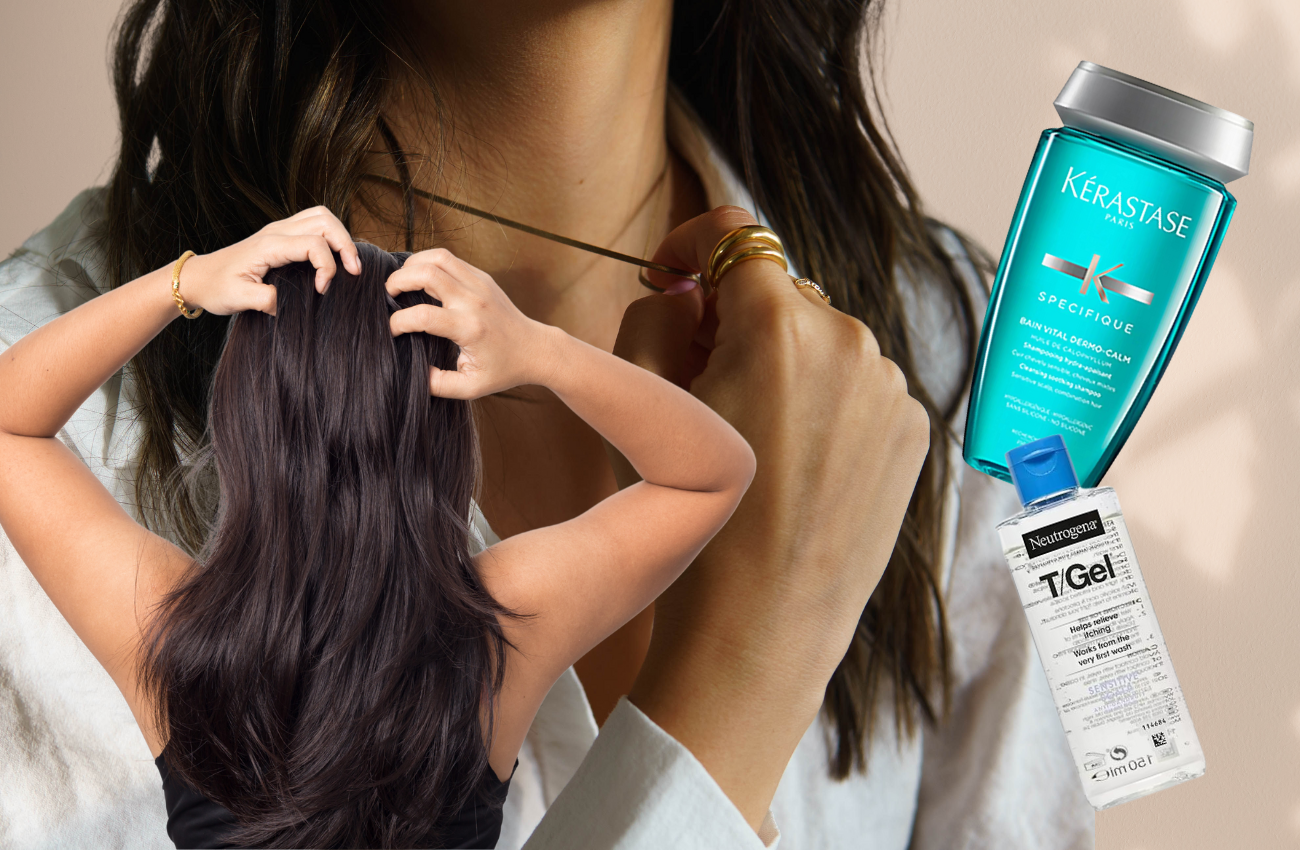An itchy scalp can be a frustrating and uncomfortable experience. Whether you’re constantly scratching your head in public or trying to hide dry flakes from your hair, an itchy scalp can impact your self-esteem and quality of life. But what causes an itchy scalp, and how can you treat it? We explore the causes of scalp irritation in women, common symptoms, and effective treatment options.
What is an Itchy Scalp?
An itchy scalp is a common condition that can occur for a variety of reasons. It can be caused by skin conditions, such as eczema or psoriasis, or by a reaction to hair products or other irritants. In some cases, an itchy scalp may be a symptom of an underlying medical condition, such as an autoimmune disease or hormonal imbalance.
Common Causes of Scalp Irritation
There are several reasons why your scalp may be irritated. Some common causes of itchy scalp include:
Dandruff
Dandruff is a skin condition that causes flaking and itching of the scalp. It is caused by the overgrowth of a type of yeast called Malassezia.
Contact Dermatitis
Contact dermatitis is a skin reaction that occurs when you come into contact with an irritant, such as a hair product or chemical.
Seborrheic Dermatitis
Seborrheic dermatitis is a common skin condition that causes redness, flaking, and itching of the scalp.
Scalp Psoriasis
Scalp psoriasis is a type of psoriasis that affects the scalp. It causes red, scaly patches and itching.
Allergic Reactions
Allergic reactions to hair products, such as shampoos, conditioners, or hair dyes, can cause an itchy scalp.
Ringworm
Ringworm is a fungal infection that can affect the scalp, causing itching and redness.
Symptoms of Scalp Irritation
The symptoms of an scalp irritation can vary depending on the cause. Some common symptoms include:
- Intense itching of the scalp
- Flaking or scaling of the scalp
- Redness or inflammation of the scalp
- Soreness or tenderness of the scalp
- Hair loss or thinning
- Bumps or sores on the scalp
Treatment for Itchy Scalp
Understanding the root cause of your scalp irritation is important in order to treat it effectively. For example, if you have dandruff, you may need a medicated shampoo to control the flaking and itching. If your scalp irritation is caused by an allergic reaction, you’ll need to identify the trigger and avoid it in the future.
The treatment for an itchy scalp will depend on the underlying cause. Some common treatment options include:
Shampoos: Special shampoos, such as those containing coal tar or salicylic acid, can help treat dandruff and other scalp conditions.
Medications: Prescription medications, such as corticosteroids or anti-fungal medications, may be necessary for more severe scalp conditions.
Lifestyle changes: Avoiding irritants, such as hair products or certain foods, may help reduce symptoms of an itchy scalp.
Home remedies: Natural remedies, such as tea tree oil or aloe vera, can help soothe an irritated scalp. It’s important to contact a Dermatologist if none of these home remedies and treatemnets work.
Effective Scalp Irritation Treatments
Once you’ve determined the cause of your scalp irritation, there are several effective treatments to try:
Tea Tree Oil – This natural oil has anti-inflammatory and anti-fungal properties that can soothe an irritated scalp and prevent further irritation.
Aloe Vera – Known for its cooling and moisturising properties, aloe vera can be effective in reducing scalp irritation.
Apple Cider Vinegar – This kitchen staple can help balance the pH of your scalp, which can alleviate irritation and itchiness.
Medicated Shampoos – There are several over-the-counter medicated shampoos available that can help treat scalp conditions like dandruff, psoriasis, and eczema.
Lifestyle Changes – Making small changes to your hair care routine, such as using gentler products and avoiding tight hairstyles, can also help reduce scalp irritation.
Home Remedies for an Irritated Scalp
- Use a medicated shampoo
- Apply essential oils
- Use a scalp scrub
- Apply aloe vera gel
- Try an oatmeal mask
- Use a tea tree oil treatment
- Change your hair care routine
The Best Products for Scalp Irritation
In addition to the above treatments, using the right hair products can also help soothe and heal your scalp. Here are some of our top picks:
Neutrogena T/Gel Therapeutic Shampoo – This medicated shampoo contains coal tar to effectively treat scalp conditions like dandruff and psoriasis.
Briogeo Scalp Revival Charcoal + Coconut Oil Micro-Exfoliating Shampoo – This shampoo contains charcoal and coconut oil to detoxify and soothe the scalp.
Head & Shoulders Supreme Soothe & Strengthen Shampoo – This shampoo contains tea tree oil and argan oil to calm and nourish an irritated scalp.
Kérastase Specifique Bain Vital Dermo-Calm Shampoo – This gentle shampoo is formulated for sensitive scalps and contains calming ingredients like menthol and vitamin E.
Editor’s Picks to Shop Now:


Scalp Irritation FAQs
How do I know if I have an irritated scalp?
If you experience persistent itching, flaky or scaly skin, redness or inflammation, tenderness or soreness, or hair loss or thinning, you may have an itchy scalp.
What are the remedies for an itchy scalp?
Remedies for an itchy scalps include using a medicated shampoo, applying essential oils, using a scalp scrub, applying aloe vera gel, trying an oatmeal mask, using a tea tree oil treatment, changing your hair care routine, or consulting a dermatologist.
Can stress cause an itchy scalp?
Yes, stress can contribute to an itchy scalp by triggering inflammatory responses in the body.
Is an itchy scalp contagious?
No, an itchy scalp is not contagious. However, some conditions that cause an itchy scalp, such as ringworm, can be contagious.
How can I prevent an itchy scalp?
To prevent scalp irritation, you should maintain good hygiene, avoid using harsh hair products, protect your scalp from sunburn, and manage stress.





